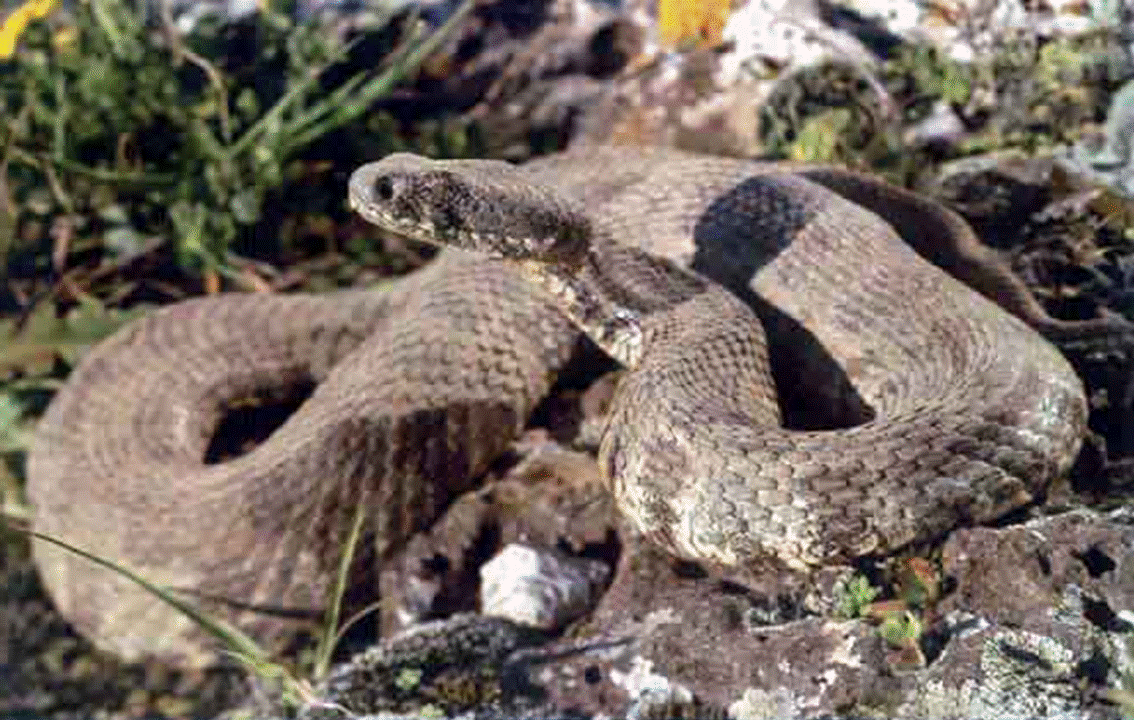A VENOMOUS ENDEMIC SNAKE
ENDEMIC TO CYPRUS
The Cyprus blunt-nosed Viper (Macrovipera lebetinus), as the name suggests, is a venomous snake endemic to Cyprus. Its distinct triangular blunt nose, along with its striking appearance, sets it apart from other viper species in the Mediterranean. This snake exhibits a fascinating blend of traits that contribute to its survival in its harsh environment.
DISTINCTIVE FEATURES
One of the most distinctive features of this snake is its physical appearance. This snake has a thick body with a large, wide, triangular head. Its robust body that can grow up to 180 cm. Its distinctive markings are a remarkable array of symmetry and colour that can often vary. the snake’s dorsal side usually consists of a mix of earthy tones, ranging between various sandy shades. Its scales usually comprise of a textured, rough quality that often has a distinctive pattern of dark red to dark browns. these are usually set against its lighter sandy colourations. This allows the snake to seamlessly blend in with its natural rocky and arid habitat.
PRIMARILY NOCTURNAL
It tends to avoid the scorching heat of the day, so is primarily nocturnal. The snake is most active during the twilight hours seeking its prey under the cover of darkness, when temperatures are more favourable.
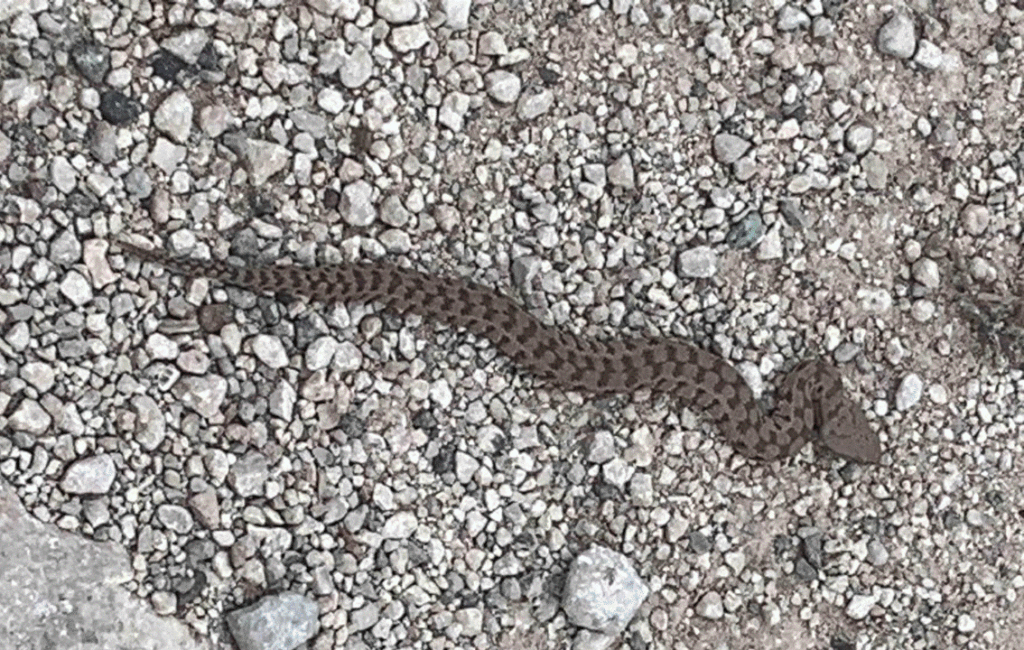
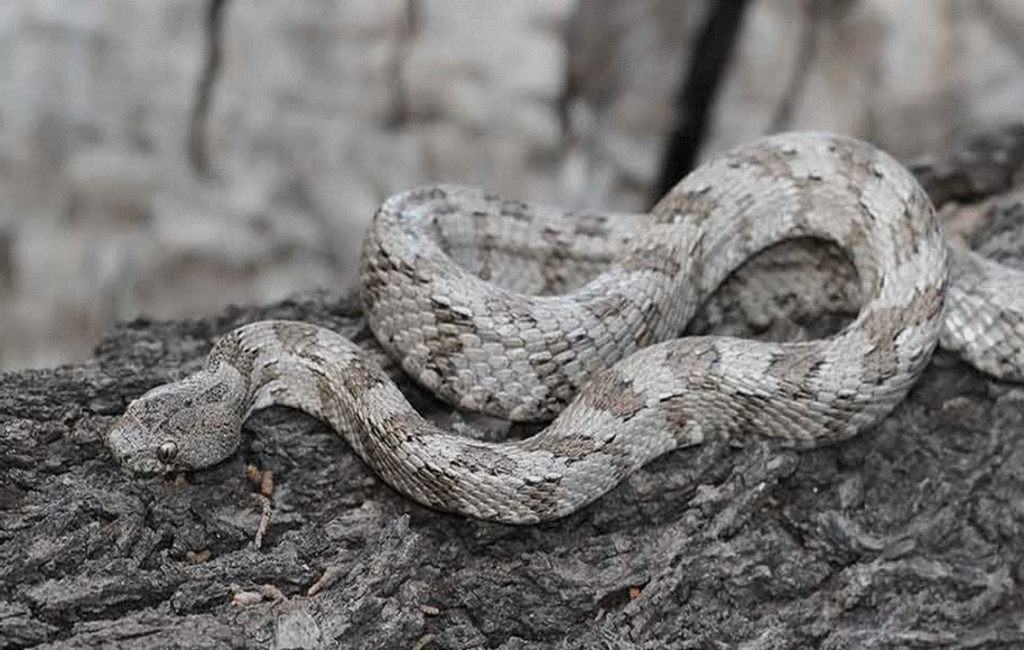
INTRIGUING BEHAVIOUR
This snake has some intriguing behavioural patterns, especially when threatened. Despite its venomous nature, it is generally a reclusive reptile and will usually opt to retreat rather than confront any potential threat. When threatened, it usually assumes a defensive posture, coiling its body. The snake will then hiss profusely while constantly vibrating its tail.
DISTINCTIVE FEATURES
The habitat of the Cyprus Blunt Nosed Viper is predominantly rocky and arid terrain. this typically includes scrublands, rocky outcrops, and dry grassy areas. The snake is also known to inhabit coastal areas and agricultural land. This means that the snake sometimes crosses paths with farm workers. These snakes, like most vipers, are generally elusive and will not attack unless provoked or threatened. Despite this, there are up to 20 attacks on humans registered on avergae in Cyprus every year.
A SKILLED AMBUSH PREDATOR
The snake’s size, as well as its prowess as a skilled ambush predator, makes it a formidable adversary to various small rodents, mammals, birds, and lizards. The snake generally lies in wait and uses its rapid strike rate to administer its potent venom. Its venom, once administered, takes just seconds to subdue its prey.
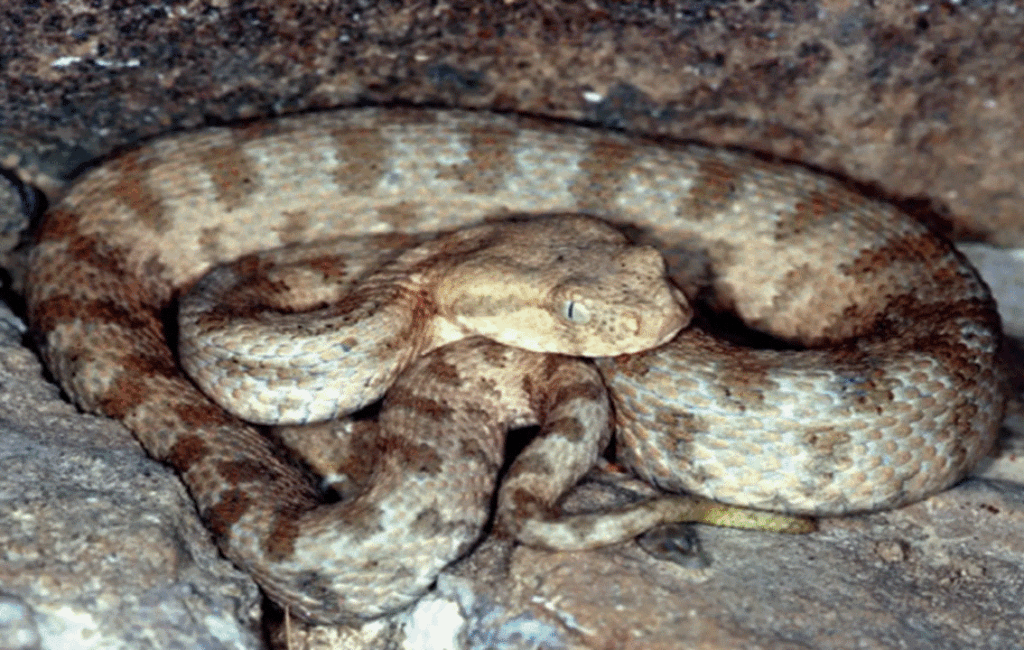
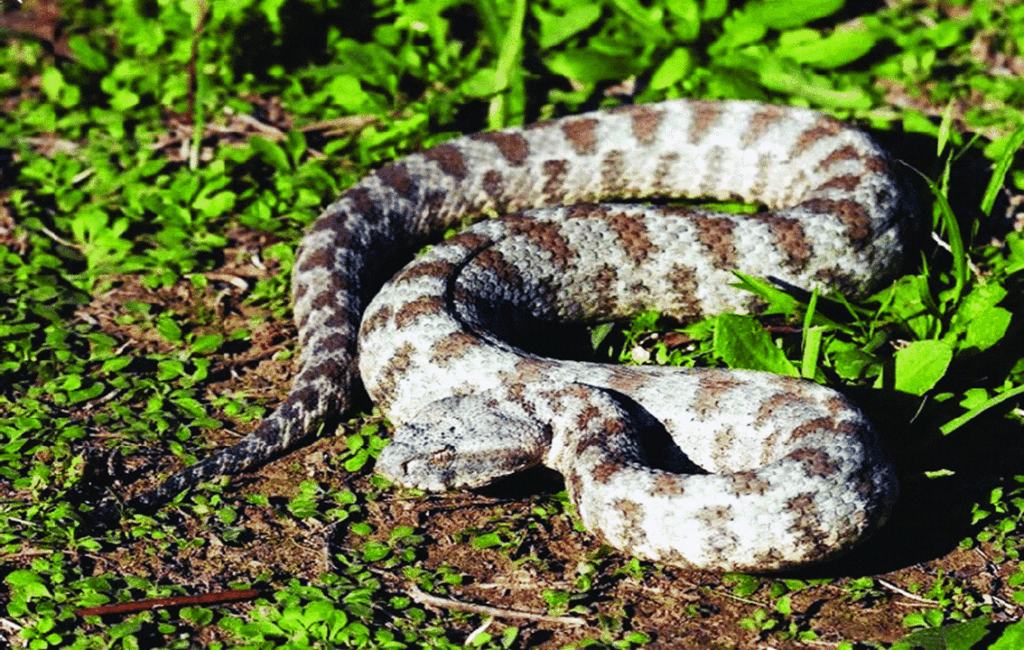
A SPECIAL VENOM
The viper’s venom is a subject of great interest. The venom is a neurotoxin that is known to cause tissue damage and blood coagulation. Its composition contains a complex mixture of enzymes, peptides, and proteins that can cause a range of different reactions for different animals.
CONSERVATION
The Cyprus Blunt Nosed Viper has captivated the attention of researchers, conservationists and reptile enthusiasts all over the world. All have identified this serpent as a fascinating and ecologically important species. The viper plays a crucial role in maintaining the balance of the island’s ecosystem, helping to control rodent populations. Increased habitat loss, human persecution, and road mortality have all impacted this snakes numbers on the ialand. As a result, initiatives aimed at preserving the viper and promoting a greater public understanding of these creatures are underway. It is hoped that these will ensure the continued existence of this unique species of snake on the island.
A WORTHY ADVERSARY
The viper’s venom underscores its role as an apex predator, but despite this, the snake has a worthy adversary on the island. This comes in the form of the CYPRUS WHIP SNAKE, which is another snake species endemic to the island. This cannibalistic snake avidly hunts the Blunt-Nosed Viper, controlling its numbers on the island.
